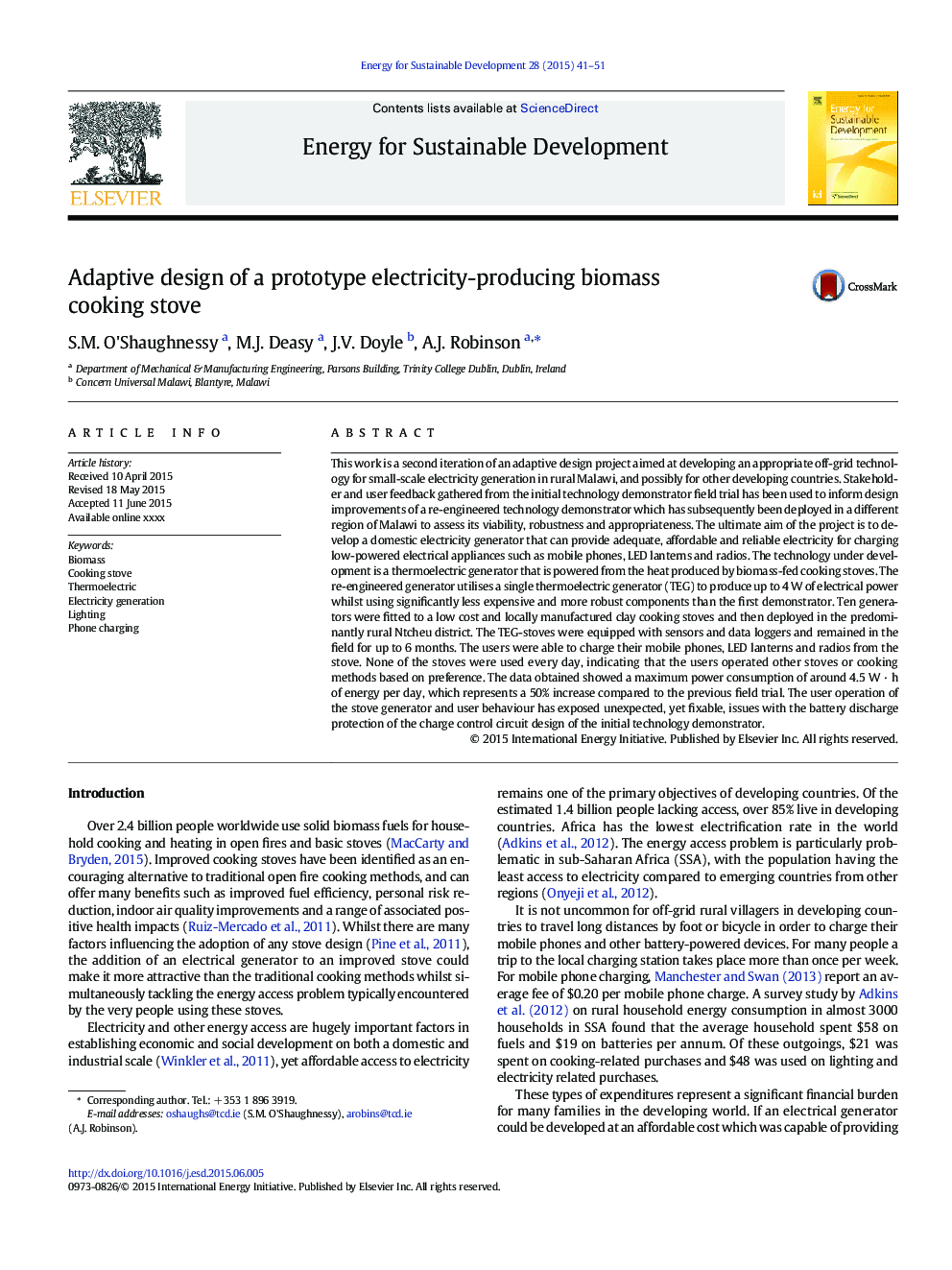| کد مقاله | کد نشریه | سال انتشار | مقاله انگلیسی | نسخه تمام متن |
|---|---|---|---|---|
| 7453871 | 1484402 | 2015 | 11 صفحه PDF | دانلود رایگان |
عنوان انگلیسی مقاله ISI
Adaptive design of a prototype electricity-producing biomass cooking stove
ترجمه فارسی عنوان
طراحی سازگار با یک نمونه اولیه اجاق گاز پخت و پز زیست توده تولید برق
دانلود مقاله + سفارش ترجمه
دانلود مقاله ISI انگلیسی
رایگان برای ایرانیان
کلمات کلیدی
زیست توده، اجاق گاز، ترموالکتریک، تولید برق، روشنایی، شارژ تلفن
موضوعات مرتبط
مهندسی و علوم پایه
مهندسی انرژی
انرژی (عمومی)
چکیده انگلیسی
This work is a second iteration of an adaptive design project aimed at developing an appropriate off-grid technology for small-scale electricity generation in rural Malawi, and possibly for other developing countries. Stakeholder and user feedback gathered from the initial technology demonstrator field trial has been used to inform design improvements of a re-engineered technology demonstrator which has subsequently been deployed in a different region of Malawi to assess its viability, robustness and appropriateness. The ultimate aim of the project is to develop a domestic electricity generator that can provide adequate, affordable and reliable electricity for charging low-powered electrical appliances such as mobile phones, LED lanterns and radios. The technology under development is a thermoelectric generator that is powered from the heat produced by biomass-fed cooking stoves. The re-engineered generator utilises a single thermoelectric generator (TEG) to produce up to 4 W of electrical power whilst using significantly less expensive and more robust components than the first demonstrator. Ten generators were fitted to a low cost and locally manufactured clay cooking stoves and then deployed in the predominantly rural Ntcheu district. The TEG-stoves were equipped with sensors and data loggers and remained in the field for up to 6 months. The users were able to charge their mobile phones, LED lanterns and radios from the stove. None of the stoves were used every day, indicating that the users operated other stoves or cooking methods based on preference. The data obtained showed a maximum power consumption of around 4.5 W · h of energy per day, which represents a 50% increase compared to the previous field trial. The user operation of the stove generator and user behaviour has exposed unexpected, yet fixable, issues with the battery discharge protection of the charge control circuit design of the initial technology demonstrator.
ناشر
Database: Elsevier - ScienceDirect (ساینس دایرکت)
Journal: Energy for Sustainable Development - Volume 28, October 2015, Pages 41-51
Journal: Energy for Sustainable Development - Volume 28, October 2015, Pages 41-51
نویسندگان
S.M. O'Shaughnessy, M.J. Deasy, J.V. Doyle, A.J. Robinson,
